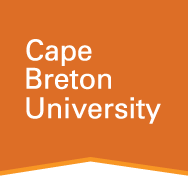Cape Breton University

- Canada
- World Rank : -
- Visit Website
Cape Breton University is a unique place where students who believe that they can actually have an effect in the world discover what that effect is going to be. It is one of Canada’s youngest and most ambitious universities with a comprehensive set of liberal arts, science and professional programs and a unique commitment to community, economic development, aboriginal learning and research into many aspects of environment and culture.
CBU prides itself on providing a personalized undergraduate education that focuses on academic and research excellence, student services, a vibrant campus life and cutting-edge technological tools. The university offers outstanding applied research opportunities to students, and technical assistance to business, industry and community organizations. Home to Canada’s only Master of Business Administration in Community Economic Development, CBU is also known as Atlantic Canada’s leader in Aboriginal post-secondary education.
The great thing about a small campus is there’s always something going on, the student body is always involved and there is never a dull moment. Cape Breton University is dedicated to providing students with a variety of physically active choices. Throughout the year, students will be able to participate in: daily and nightly intramurals, the Shinerama Lob Ball Tournament, Yoga and Pilates classes, Super Bowl Flag Football and so much more. The Intramural program promotes an environment of fun, fair play, and athletic competition, through the medium of physical activity. Beside this, it offers numerous student societies like Aboriginal Society, Track and Field Society, Volunteer Society, Save the Children Society, Orange Army etc.
The university is as distinct as the island it’s named after. Cape Breton Island is an amazing backdrop for student’s time at university. From the Bras D’or lakes to the stunning Cabot Trail, there’s a reason that Cape Breton Island is consistently voted one of the most beautiful islands in the world. Located in Sydney, CBU students will have plenty of opportunity to check out the natural beauty of the Island and be back with more than enough time for a night out with friends in the city.
Main Campus
Nearest City: Halifax
Type: On-campus
Address: 1250 Grand Lake Road, Sydney, Nova Scotia, B1P 6L2 Canada
Cape Breton University’s Centre for Teaching & Learning works to provide guidance and support to all teaching staff, with the ultimate goal of working collaboratively with faculty and staff to support excellence in teaching. The CTL does this through activities such as workshops, information sessions, roundtable discussions and peer-mentoring.
Some of the smallest class sizes in the country (15:1 student-teacher ratio)
Of the over 15,000 CBU alumni across the world, some prominent names include:
Application Fees – Non-Refundable CAD 103 (Only through Credit Card)
Intakes: January, summer (May-June) & September
International applicants with a native language other than English are required to present TOEFL, IELTS, CAEL, MELAB, PTE-A, CanTest, Duolingo Test scores to demonstrate English Language proficiency.
| Test | Minimum Scores Required |
|---|---|
| TOEFL | 550 (Paper based test) 213 (Computer based test) 80 (Internet based test) |
| IELTS | 6.5 |
| CAEL | 60 |
| MELAB | 85 |
| PTE-A | 59 |
| CanTest | 4.5 (Reading & Listening) 4.0 (Writing) |
| Duolingo Test scores | 150 (For Undergraduate Programs,diplomas and certificate) 120 (For MBA, B.Ed and Post Baccalaureate Diplomas) |
| Type of university | Public |
| Undergraduate Programs | 17 |
| Postgraduate Programs | 3 |
| Diploma and Certificate Programs | 7 |
| Tuition per academic year for Undergraduate International Students | $17,809 |
| Test scores accepted | IELTS, TOEFL |
For international candidates aspiring to study at the university, it is mandatory to have an estimate of the cost of living in Canada to survive comfortably in a foreign land. Below is the estimated tuition and student fees for the Fall/Winter 2019 – 2020 presented-
| Fees | Undergraduate (CAD) | Graduate (CAD) |
|---|---|---|
| Tuition | 8,040 | 2,012 (for six credit course) |
| International differential fees | 8,040 | 1,608 |
| International medical plan | 744 | 744 |
| Fees | 985 | 128 |
| Housing | 5,910 | 5,910 |
| Meal Plan | 4,744 | 4,744 |
| Total | 28,463 | 15,146 |
Note: The graduate fee depends on the number of courses offered by the students. Thus, graduate students should expect to pay more than 400% of the above-stated fees
| Tuition Fees in Canada (1st Year Average) | BE / BTech: CA$22,600 | MBA: CA$25,375 | MS: CA$17,225 | BBA: CA$20,560 | MEng: CA$22,225 | BSc: CA$20,745 | MASc: CA$20,375 | MIM: CA$28,900 | MA: CA$12,970 | MFin: CA$32,785 | BHM: CA$20,560 | MEM: CA$17,040 |
| Average Accomodation & Food Costs in Canada | CA$8890 Per Year |
| Entrance Exams in Canada | TOEFL: 86 | IELTS: 6.5 | PTE: 60 | GRE: 309 | GMAT: 560 | SAT: 1177 |
| Work and Study in Canada | Permitted for 20 hours/week with a valid study permit. |
| Post Study Work Permit in Canada | Up to 3 Years after graduation depending on the course. |
| Cost of Student Visa in Canada | CAD 150 |
| Student Visa in Canada | A Canada student permit is a document issued by IRCC (Immigration, Refugees and Citizenship Canada) for international students in Canada. To study in Canada, you will require a student permit, which serves as a student visa. |
| Intakes in Canada | There are Three Intakes in Canada: Fall (September), Winter (January) and Spring (May) |
| Top Job Sectors in Canada | Business Management, Engineering, Economics, Dentisty, Law, Computer Science. |
| Economy in Canada | GDP Growth of 1.9% (2018) 1.5% (2019e), 10th Largest Economy in the World by Nominal |
$ 7,407
$ 30,550
$ 10,942
$ 6,045
